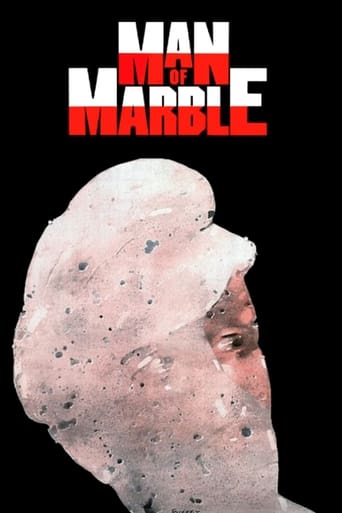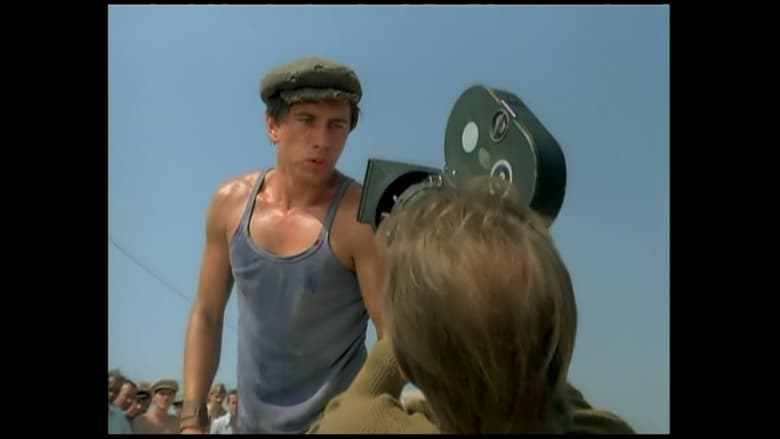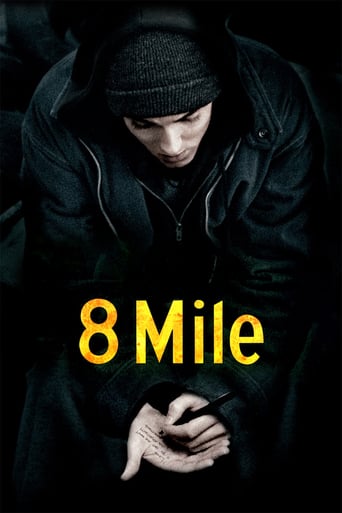

Man of Marble (1981)
A young Polish filmmaker sets out to find out what happened to Mateusz Birkut, a bricklayer who became a propaganda hero in the 1950s but later fell out of favor and disappeared.
Watch Trailer
Cast


Similar titles
Reviews
"Czlowiek z marmuru" ("Man of Marble") goes to tells us the story of a filmmaker (Krystyna Janda) who wants to make as a film thesis a documentary about one of the heroes of Poland's communist regime, a simple man named Mateusz Birkut (Jerzy Radziwilowicz), a bricklayer who was famous for building housing for all the people, and that made him a cult figure in his country. She is trying to find Birkut, a popular figure that vanished without any explanation and she'll try to discover what happened with this mythic figure. Interviewing those who knew him and watching old footage of him, the filmmaker will make a great work about this man but her bosses who owns the funds (the Socialist government funds) for the film's realization are not very happy with her film, thinking that this might be a damaging project for them.If the story sounds a little like "Citizen Kane" well, be ready for countless flashbacks, back and forth in the past of Birkut, and an almost inconclusive ending just like Welles masterpiece. But wait! The ending of this journey appears in "Man of Iron" (1981), also directed by the great Andrzej Wajda. "Man of Marble" (term that refers to the propagandistic marble statues made in Birkut's image) is a powerful and brilliant story about the importance of past in the lives of everyone, it's the thing that makes us look for the future with better eyes, and in the film, we are constantly dragged down to it in order to get some answers about Birkut's future: Is he alive? Is he dead? Why he disappeared? Not just that, it is a great accomplish in showing how documentaries are made, both the protagonist work but the ones made up by the government, where Birkut and his friends were "trained" to appear important in front of camera. And, of course, a political and historical background that reveals many things about Poland and how strict the society were back in the 1950's and even in the 1970's with an absolute control on everything filmed, said and all. Unique in many senses, "Man of Marble" present us the sad reality of Communism with masked realities where everything presented as good but in the surface it wasn't all good, and Birkut realizes that after a painful incident and after the suspicion that his friend was a spy, something that he never agreed, and that made him fight with the ones who put him on a good position among people, the government.It is a well made film, with terrific performances by the cast, and a magnificent screenplay that knows how to evoke many times, many periods of Poland without being confusing (something that was problematic in its sequel), everything works fine. Bravo, Mr. Wajda. 10/10
The usual comparison- and inspiration- is with Citizen Kane, but there are important differences. One is that the hero here really is a citizen- a comrade in his own eyes- and the other is the difference in the person trying to learn about him. The reporter in Citizen Kane is an experienced hack who is indifferent except to the front page; Agnieska is at the start of her possible career, making her graduation film, the one which will make her name and determine her future and looking for a story that matters in itself; indeed, Agnieska's story is as important to the film as Birkut's and in some ways her story reflects his. She works as determinedly as any Stakhanovite and the way she binds her helpers- the film crew, archivists, people who knew Birkut- to her in her task and to think it worth doing for themselves means that she creates a shock-force as real as and more effective than Birkut's display team of brickies. Again, the characters we meet who knew Birkut all have a relationship with Poland as well as Birkut and their own careers- building-worker to political prisoner to industrialist; chekist to strip-club manager; propaganda film-director to...film-director; gymnast to drunkard- reflect the changes as they- and communist Poland- age. There's hope- the old cameraman blasted into admiration and respect for Agnieska when she shows she'll do his job for him. Indeed, Agnieska is a wonderful character, her long limbs wrapped round her, carrying "everything I possess" round everywhere, smoking cigarettes avidly, demanding "wide screen, like an American movie"- you can see why the Party and her superiors want her to succeed and why they fear her. Not only that, but the film is fair to Communist Poland- we see Agnieska's home and realise that it is because of the opportunities given by communism that she can leave the boundaries imposed on her railway-worker father, just as Birkut only achieves fame as a worker in a supposedly workers' state. It is because both of them take rhetoric seriously that they are finally unsuccessful. After all, we never do know who sabotaged the bricks and burned Birkut's hands, and it doesn't really matter in a state where rhetoric is what counts.
So many film students have wasted their time trying to study "Kane" as a character study and as a satire. But it wasn't really either of those things, but an experiment in depth for the camera and narrative structures. The frequent comparison between that film and this one makes a lot of sense superficially; the newsreel footage, the interviewees made up to look 20 years older.But Agniezcka is making a film, rather than a piece for a newspaper: journalism vs. art, capitalism vs. socialism. Although the journalists in "Kane" said otherwise, they were never seeing "who he was" rather "what he was like" ie. his behaviour, how others perceived him etc. Here we have something broader, examining a man confronting society, confronting his friends, and confronting himself all at the same time. Newspaper journalism tells us what something is like. Good documentary strives to really define what or who something was.This is a highly intelligent structure, moreso than his previous works and moreso even than "Kane." As a meditation on film-making, it moves gracefully from the shots captured by Agniezcka's cinematographer, and the shots of Wajda himself, forcing us to draw parallels.It's a shame Wajda remains largely unknown. Perhaps the up-coming Criterion set of his "War Trilogy" will change that.4 out of 5 - An excellent film
Wajda's MAN OF MARBLE is one of the most compelling attacks on government corruption that I have ever seen. It is a "Citizen Kane"-styled story of a female film student who tries to trace the history of Birkut, a long-forgotten "hero" of the Polish Communist government.She begins by viewing propaganda film that praises Birkut as a devout worker who slaves away at brick-laying for the officials. He has the appearance of a vigilant, Hercules-like strongman who breezes through the labor without breaking a sweat. Then she goes to interview the director, who was hired by the government. He tells her about the reality of making the film, such as how Birkut was given extra food and water (unlike the other bricklayers). Wajda uses these two conflicting scenes to deconstruct the false imagery that propaganda gives its viewers. He shows us how officials manipulate such situations to their own political good.The student goes on to interview other subjects who describe the brutal reality of Birkut's off-camera existence. In one devastating scene, she meets his wife, who breaks down and tries to avoid being interviewed. As the truth becomes clearer and clearer, the government begins to intercede in the production of the student's film.Wajda was a film-maker who was not afraid to criticize the harsh Polish government that eventually was defeated by individuals such as Lech Walesa. MAN OF MARBLE is a testament to those who had to live through the oppression of Communism, and also to those who are still living under its iron fist.














